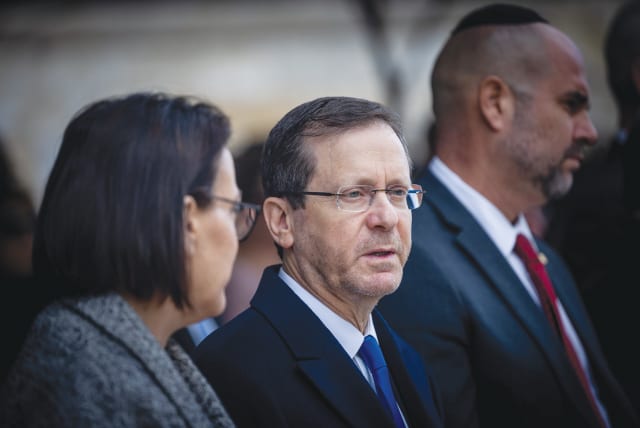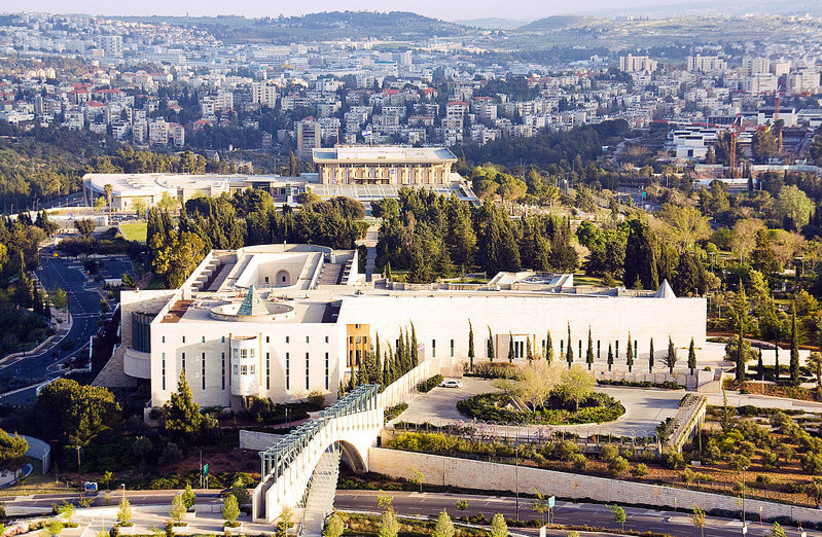Israel's judicial reform crisis could be solved by referendum - opinion

While it is likely that the coalition will try to pass a softened version of the reform, it would be appropriate to consider the possibility of holding a referendum as an exit strategy.
President Isaac Herzog’s outline that was presented last week is indeed a brave attempt to reach a compromise between the two sides and especially to put an end to the deep rift in the people of Israel in the last two months. The tumultuous demonstrations, the calls for refusal to serve and the continued polarization causes our enemies to rub their hands with pleasure. As we saw last week in the security incident in which a terrorist from Lebanon was caught and killed, to show boldness is to attempt to harm Israel’s soft underbelly while thinking that the Zionist vision is crumbling.
In Tehran, Damascus and Beirut, they only hope that Israel will deteriorate into a constitutional crisis that will further disintegrate Israeli society and hope even more that a fratricidal war that will lead to the absolute end of Israel will break out.
True, the president’s outline does not meet the wishes and aspirations of all parties. The coalition can rightly claim that the original outline proposed by Justice Minister Yariv Levin constitutes a real correction of the relationship between the authorities. In fact, the coalition wants to return to a time when the Supreme Court did not intervene excessively, a tradition that was preserved until the judicial activism led by former president Prof. Aharon Barak began.
Also, the widespread claim regarding the issue of legal advisers, according to which their conduct burdens the decision-making process, was not answered in the president’s outline, which in practice leaves the current situation in which the legal advisers, who were not elected by the people, act with authority but without responsibility.
But despite this, Herzog’s outline does offer changes that the coalition can welcome, ones that really add balance between the authorities and significantly weaken judicial activism. For example, the Basic Laws will be passed in four readings, with the last one requiring a majority of 70 MKs and in special cases 80 MKs, with the goal that the Basic Laws will be widely legitimized by the Knesset and not just by a narrow majority.
IN ADDITION, according to the president’s outline, the Supreme Court will no longer be able to annul Basic Laws but only ordinary laws and here also by a two-thirds majority in a composition of 11 judges and not by a small composition and a simple majority as the situation is today. Another significant achievement for the supporters of the reform is the reduction of the concept of reasonableness regarding decisions on government policy and the appointment of ministers.
There is no doubt that Herzog’s outline does not meet the expectations of all parties and it most likely will not lead to a solution to the crisis. While it is likely that the coalition will try to pass a softened version of the reform in order not to be seen as capitulating to the opposition’s protests, an action that may not end the crisis, it would be appropriate to consider the possibility of holding a referendum as an exit strategy from the crisis.
A referendum could help Israel exit the crisis
A referendum has never been held in Israel and it is a complex procedure, which can also lead to deep controversy. For example, how will the question on which the citizens of Israel will be called to vote be worded? What should be the majority for the decision? And what should be the minimum number of participants in the referendum in order to accept the decision?
These questions are indeed complex and require discussion, time, learning from the experience of other countries and above all agreement between the parties. Also, some will argue that the last referendum was in the November 2022 election, therefore any demand for a referendum is presumed to be heresy in the people’s decision in the elections.
However, in the absence of such a referendum, it is appropriate that all the parties in the coalition and the opposition surpass themselves and show leadership and patience and pave the way to the path of compromise. In politics, as in life, one can’t get everything he wishes for. However, in order for the Zionist enterprise to continue to prosper and for social resilience to be preserved, unity is needed in the people of Israel, which will only come through compromise and the end of the crisis.
This is the greatest hour of the politicians, who understand very well that Israel’s security first requires national unity and a shared destiny between all parts of the Jewish people living in Zion.
Prof. Kobi Michael is a senior researcher at the Institute for National Security Studies at Tel Aviv University and a visiting professor at the University of South Wales, UK. Dr. Ori Wertman is a researcher at the Institute for National Security Studies at Tel Aviv University and a research fellow at the University of South Wales, UK.
Jerusalem Post Store
`; document.getElementById("linkPremium").innerHTML = cont; var divWithLink = document.getElementById("premium-link"); if (divWithLink !== null && divWithLink !== 'undefined') { divWithLink.style.border = "solid 1px #cb0f3e"; divWithLink.style.textAlign = "center"; divWithLink.style.marginBottom = "15px"; divWithLink.style.marginTop = "15px"; divWithLink.style.width = "100%"; divWithLink.style.backgroundColor = "#122952"; divWithLink.style.color = "#ffffff"; divWithLink.style.lineHeight = "1.5"; } } (function (v, i) { });

